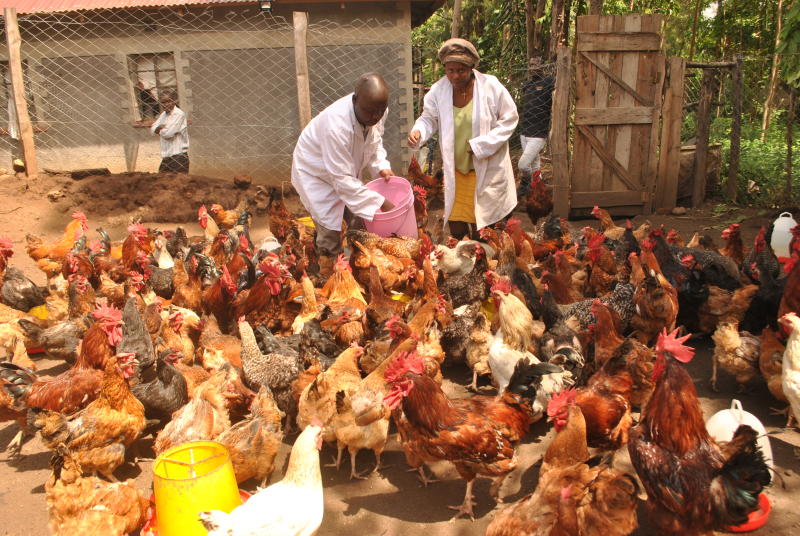
Whenever Fredrick Makokha visited his late mother, Penninah Aswani, she would prepare for him chicken stew accompanied with ugali. That was until her passing on in June, last year. To keep her memory alive, Makokha decided to rear chicken from his garage so he would have enough birds to feed his family and sell others.
Makokha, who hails from Maondo village, Eshiyunzu location in Kakamega Central Sub County, bought one-month-old 50 indigenous chickens and started rearing them from his garage. But after three months, he had slaughtered all of them.